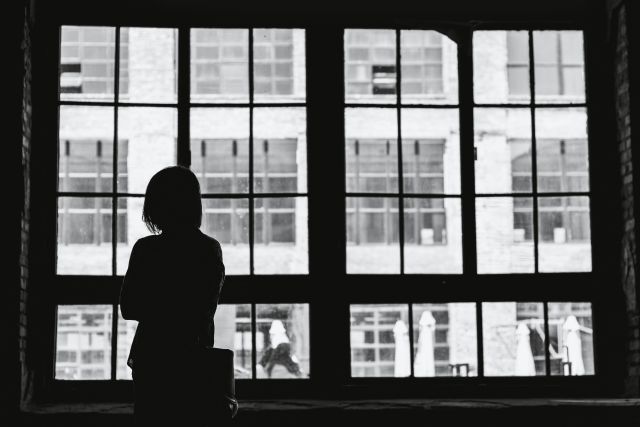If you’re feeling a little less-than-festive for the holidays this year, you have plenty of company. Many people experience holiday loneliness during the weeks from Thanksgiving to New Year’s Day. And the last few years, whether from COVID-19 or from other worries, those feelings can be even more acute. With new virus variants appearing—not to mention RSV (respiratory syncytial virus) and the “good old-fashioned” flu—some people are still anxious. And those who are elderly or immunocompromised still may not be able to spend Thanksgiving, Christmas, Hanukkah, Kwanzaa, or New Year’s Eve with other people.

Many of us have suffered periods of isolation during the last few years. And those periods will likely continue into 2023, especially with continuing uncertainty and some people forgoing masks. Things that many of us have taken for granted—eating at a restaurant, going to a football game, or enjoying a friend’s birthday party—can still seem risky.
And this time of year, the social pressure to “be happy” can be relentless: “What’s wrong? Why aren’t you celebrating?” Let’s take a look at the phenomenon of loneliness during the holidays, and what can be done to offset the effects.
Loneliness Is Different for Everyone
In her savvy article called 51 Things to Do on Christmas—Alone, Australian writer Aletheia Luna notes, “Being alone is not the same as being lonely. The two are totally different experiences. To set the record straight: being alone is something we enjoy or choose. Being lonely is something we fear and avoid.”
Some people aren’t bothered by being alone. Shortly after the pandemic began, Trevor Noah, host of The Daily Show, commented on how comfortable he feels, being at home by himself: “I feel like I’m made for social distancing.” But millions of others feel differently. Their experiences range from mild anxiety, to sadness and depression, to outright rage at being forced to spend time without other people.
It’s Normal to Feel Lonely
Feelings are just that: feelings. They come and go, and ebb and flow like the tide. Feeling lonely at times is natural; it happens to all of us. But there are ways to feel less lonely, and perhaps to find silver linings in the situation. A recent piece in Penn Medicine News encourages people not to “shrug off” those feelings of sadness.

People sometimes have unrealistic expectations about what holidays are supposed to “be.” At the University of Washington, Hsuan Hsuan Dai observes, “The whole world is talking about the holidays and what people should be doing. If you’re alone during this time, it can feel like you don’t fit into the expectations of the holiday season.”
In an article for Oprah Magazine, Stephanie L. King wryly notes, “And while, yes, you’ll probably miss your mom’s legendary bread pudding, there are plenty of things you might be happy to skip, like faking your surprise (and excitement) when Aunt Sue gives you yet another old-fashioned nightgown, sitting through the same political debates, and having to get dressed up just to eat at your own dining room table.”
She has a point.
Tips for Dealing with Loneliness
Many recommendations for alleviating holiday loneliness involve changing expectations and routine. If you’ve always gone to a friend’s house for a party and can’t attend this year, consider having an online party instead, via FaceTime, Google Meet, Skype, or Zoom.
Or instead of waiting for the phone to ring, consider calling someone else—someone who might also be waiting for the phone to ring. Helping another person who may be feeling blue can help you feel better about yourself.
Writing for the Harvard University Medical School blog, Stephanie Collier, MD, MPH, recommends limiting news consumption. (Most of us get too much of it, anyway.) She also suggests that the simple act of smiling can improve one’s mood. If it sounds too easy, well, it is!
Kate Gorman, a psychotherapist in Nyack, New York, suggests making a plan for say, Christmas Day, and not leaving the day’s events to chance. She mentions a friend who always takes a special holiday hike. “You can’t make your mind go someplace that it doesn’t want to go, but you can make a plan that is very nurturing to yourself.”
Some may find comfort in a different kind of advice. As therapist Elaine Rondino notes, “Just get through it. Read. Sleep. Rent a video. And remember, tomorrow it’ll all be over.”

The Relationship Between Loneliness and Alcohol
It may be tempting to drink your way through the holidays. (We hope you won’t, of course.) Perhaps some of the ideas in these articles will give you a new way of looking at being alone for the holidays. If you are alone this year, remember, you won’t be the first, and you won’t be the last. Millions of people have survived holiday loneliness, and you can, too.
If you do find yourself looking to alcohol for solace, try not to overdo it. If you’ve been sober recently, and have a relapse, know that you’re not alone here, either. Be kind and forgiving to yourself. And finally, if you think you might need a little help cutting down, Ria Health might be an option you haven’t considered. We’re not rehab. We don’t require abstinence. You don’t have to leave your house, your family, or your job to make changes. (And you can be at home for as much or as little of the holidays as you want.)
Some people who try Ria’s method don’t want to stop completely; they just want to cut down on their drinking. But they later find—sometimes surprisingly—that their interest in alcohol has simply evaporated.
Now wouldn’t that be a good holiday gift—to yourself?
References
- Lonerwolf (Aletheia Luna). 51 Things to Do on Christmas—Alone. Accessed December 22, 2022
- University of Pennsylvania: Penn Medicine News. Holiday Blues, Loneliness, and Missing Your Traditions: How to Handle the Emotional Impact of the COVID Holiday Season. Accessed Dec. 22, 2022
- University of Washington Medicine: Right As Rain. Feeling Lonely During the Holidays? You’re Not Alone. Accessed December 22, 2022
- Oprah Magazine. How to Spend Christmas Alone and Still Make It Merry Without Family. Accessed December 22, 2022
- National Institutes of Health: National Cancer Institute. Coping with Loneliness and Creating New Traditions this Holiday Season. Accessed December 22, 2022
- Harvard Health Publishing. How Can You Help a Loved One Suffering From Loneliness? Accessed December 22, 2022
- AARP. 5 Ways to Prepare for Your First Holiday Alone. Accessed December 22, 2022
- PsychCentral. 10 Things to Do If You’re Alone for the Holidays. Accessed December 22, 2022




